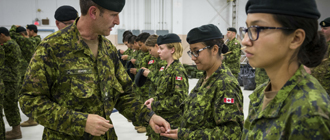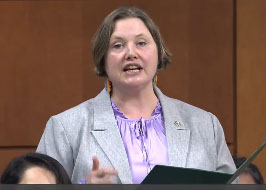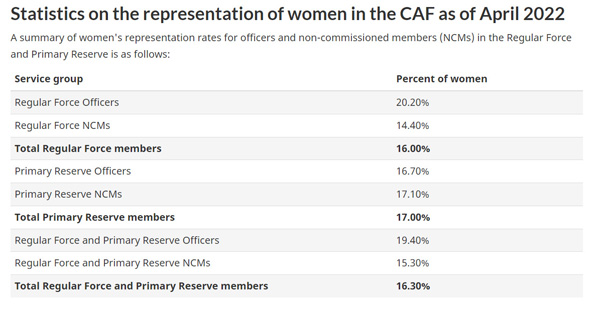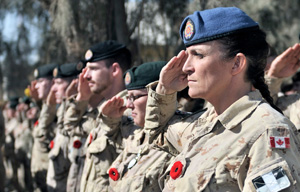Tuesday April 18, 2023 | VANCOUVER ISLAND, BC
by Mary P Brooke | Island Social Trends
The Standing Committee on Veterans Affairs will continue studying women’s unique experiences during service in the armed forces and the RCMP, in support of recruitment and cultural change.
That was good news yesterday for NDP Spokesperson for Senior and for Veterans, Rachel Blaney, who is the Member of Parliament for North Island-Powell River.
On April 17, the Standing Committee on Veterans Affairs said it will continue a first-of-its-kind study initiated by NDP Veterans Affairs Critic, Rachel Blaney.
Blaney says more information must be collected about women’s unique experiences both during and after serving in the Canadian Armed Forces (CAF) and the RCMP if more women are going to be recruited, and much-needed cultural changes are going to take place within those organizations.
Sexual bias and discrimination (and the evident prevalence of gender-based assault) has been a challenge for the CAF and RCMP over the years.
Increasing the number of women:
Blaney says this study could help improve veterans’ services and future recruitment practices.
According to employment statistics from the RCMP in 2022, women still only account for about 21 per cent of active officers. In the CAF, recruitment numbers are lower with women making up 16 per cent of new enrollment for the same year (see: Statistics of women in the Canadian armed forces, 2022).
Women veterans after retirement:
“Women who served our country risked their lives every day to protect Canadians. But Liberal and Conservative governments have made no effort to understand what life is like for women veterans while they serve, and after they retire,” said Blaney.
“For decades governments have done nothing to check in with women in the Canadian Armed Forces. We really don’t have a lot of information on how they suffer from physical and mental illnesses differently, or how best to support them once they leave their jobs.”
Injuries and diseases:
Blaney’s study will investigate the treatment of injuries and diseases that are more likely to affect women differently, the physical and mental health aspects of veteran women, the professional and economic challenges of life for veteran women, the retirement and long-term care process, and the initiatives developed in allied countries to support women veterans.
Blaney says this study could help improve veterans’ services and future recruitment practices. According to employment statistics from the RCMP in 2022, women still only account for slightly over 21 per cent of active officers. In the CAF, recruitment numbers are even more dire with women making up only 16 per cent of new enrollment for the same year (see: Statistics of women in the Canadian armed forces, 2022).
Listening to women veterans:
“We are not going to see the cultural shifts in the CAF or the RCMP that are badly needed unless we listen to women veterans’ stories,” said Blaney in Ottawa.
“How were they treated when they served? What particular challenges did they face? And what are their struggles in accessing services as veterans?” asked Blaney. “If we want thing to change for the better, we have to start by asking women with lived experience to tell us how.”






